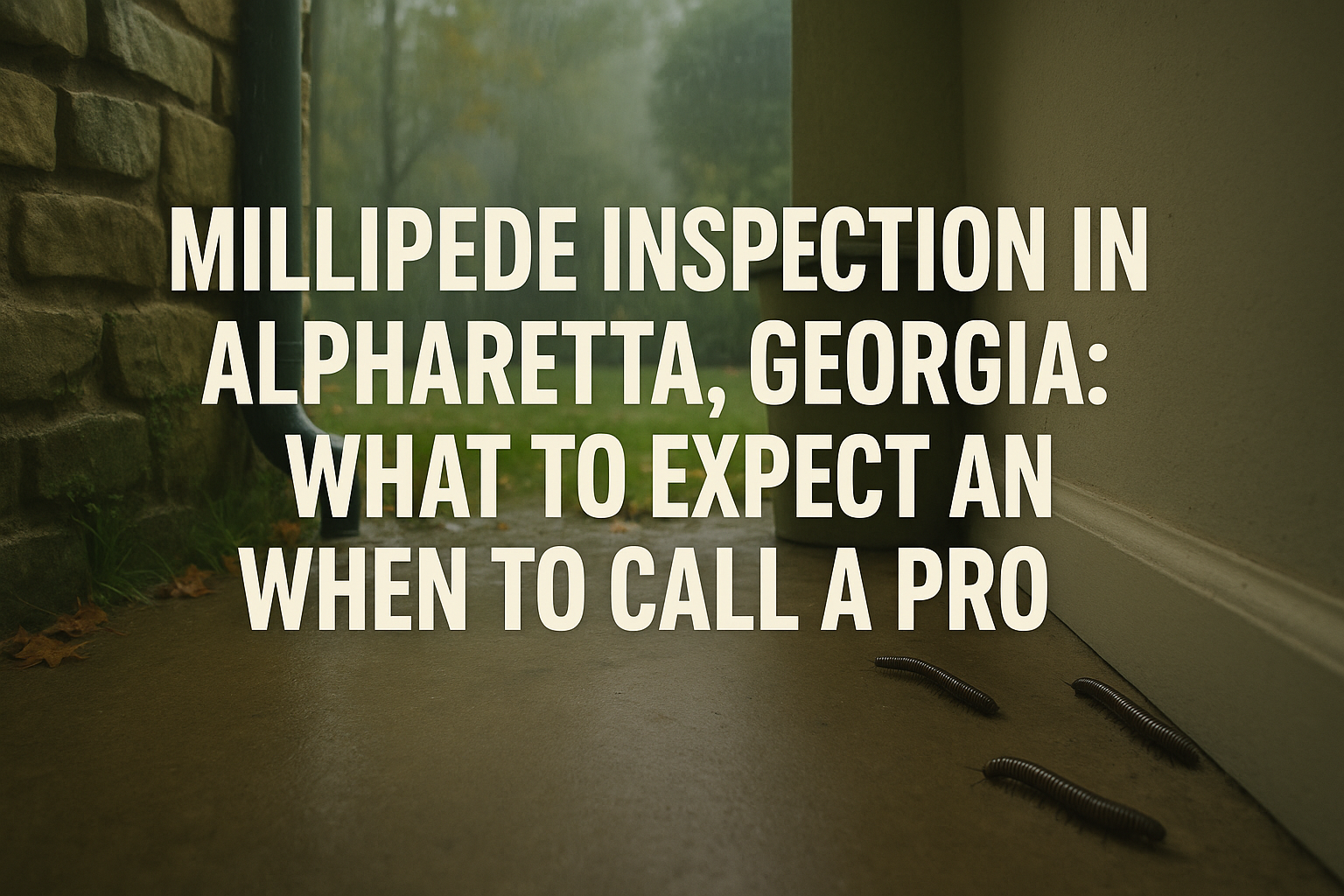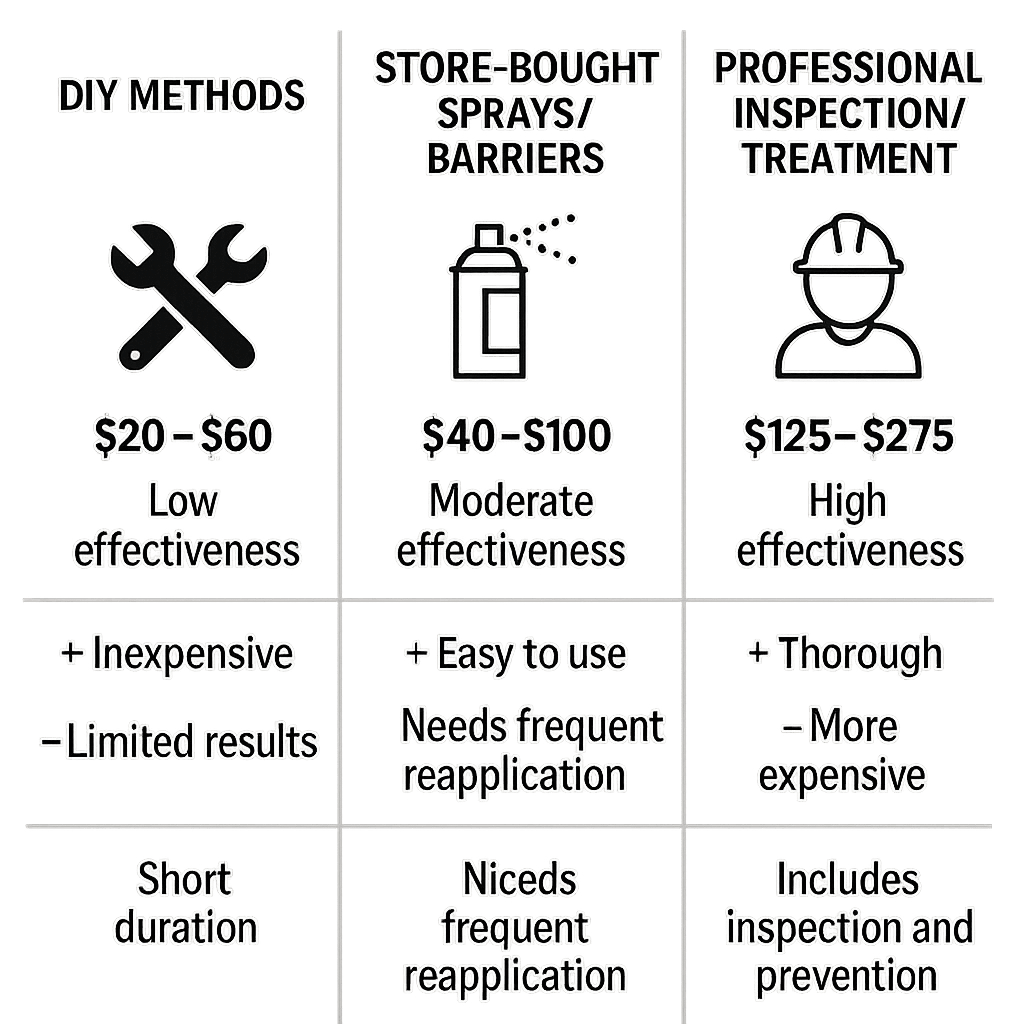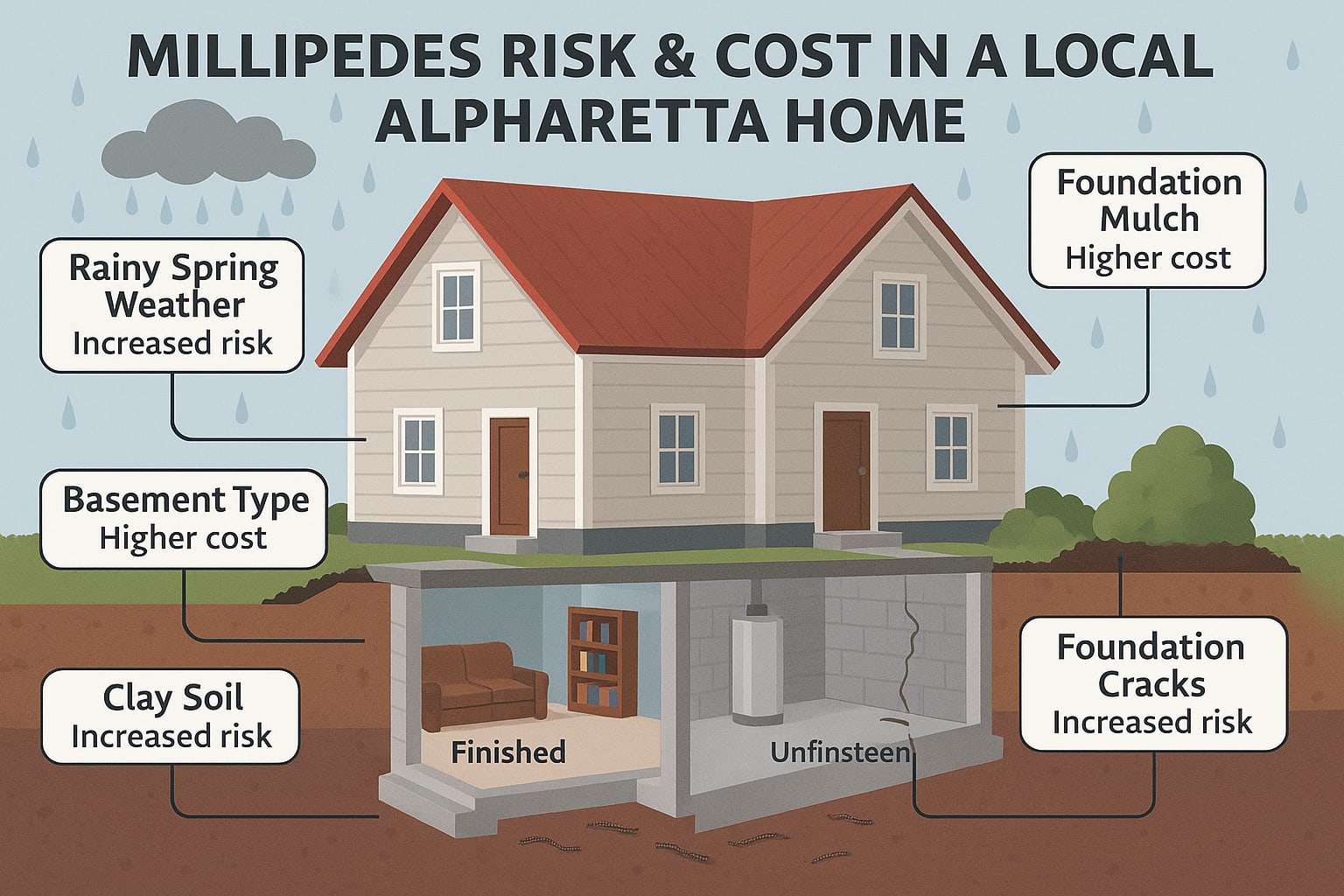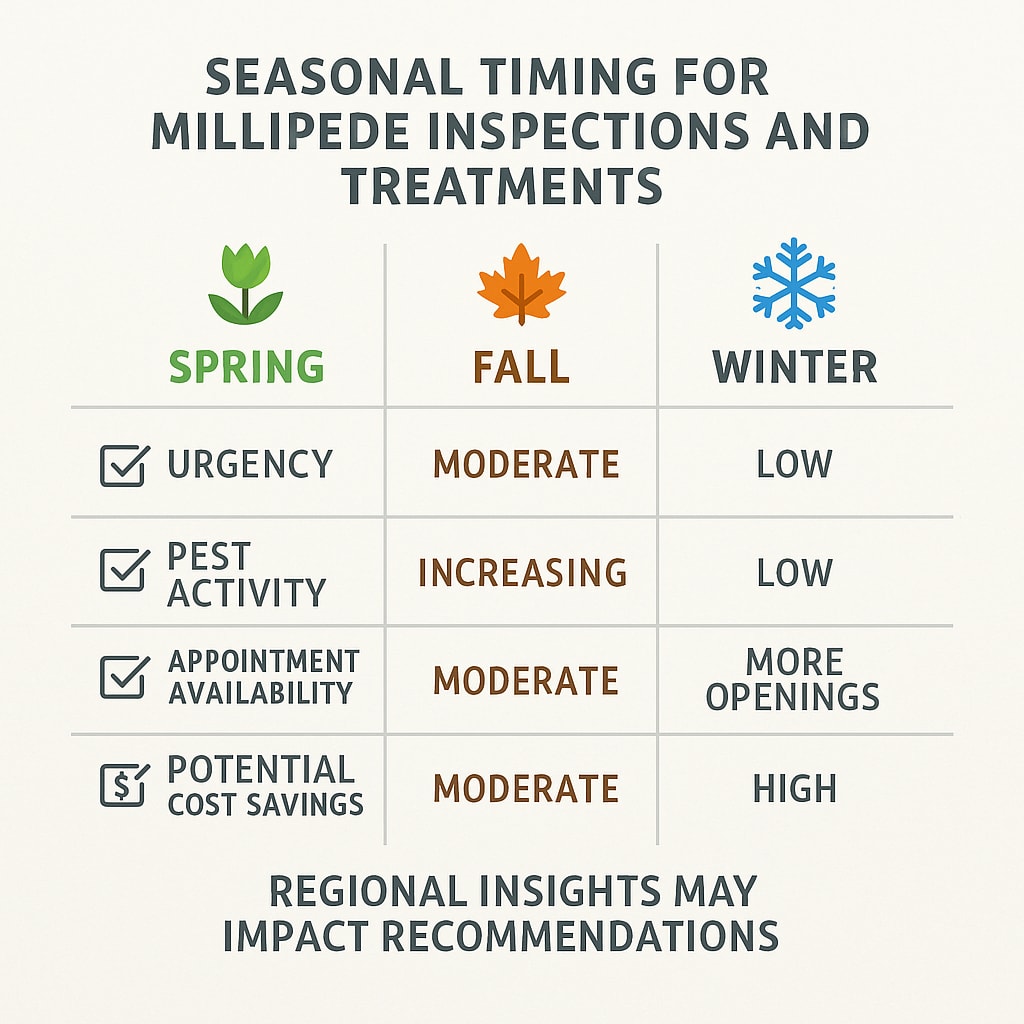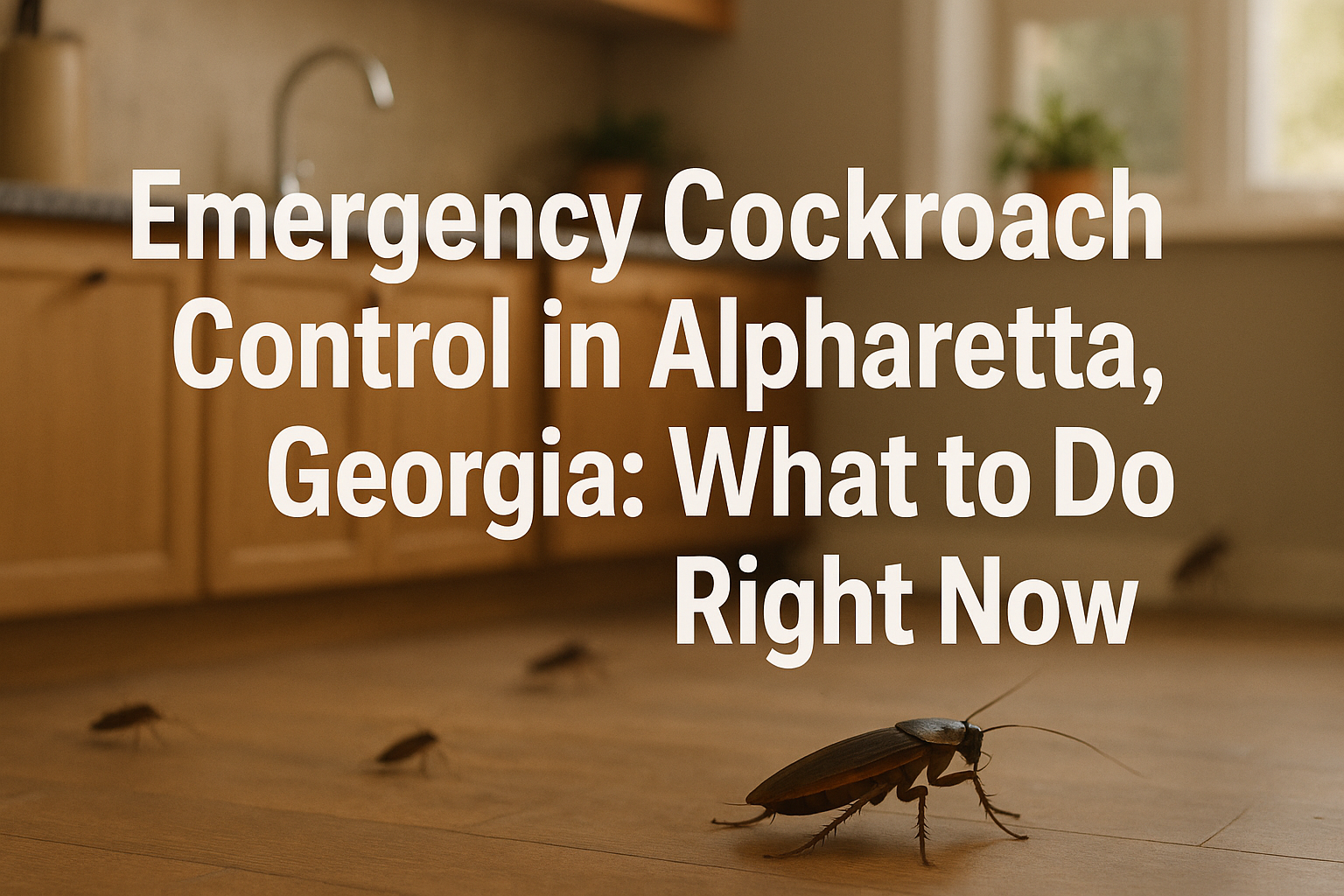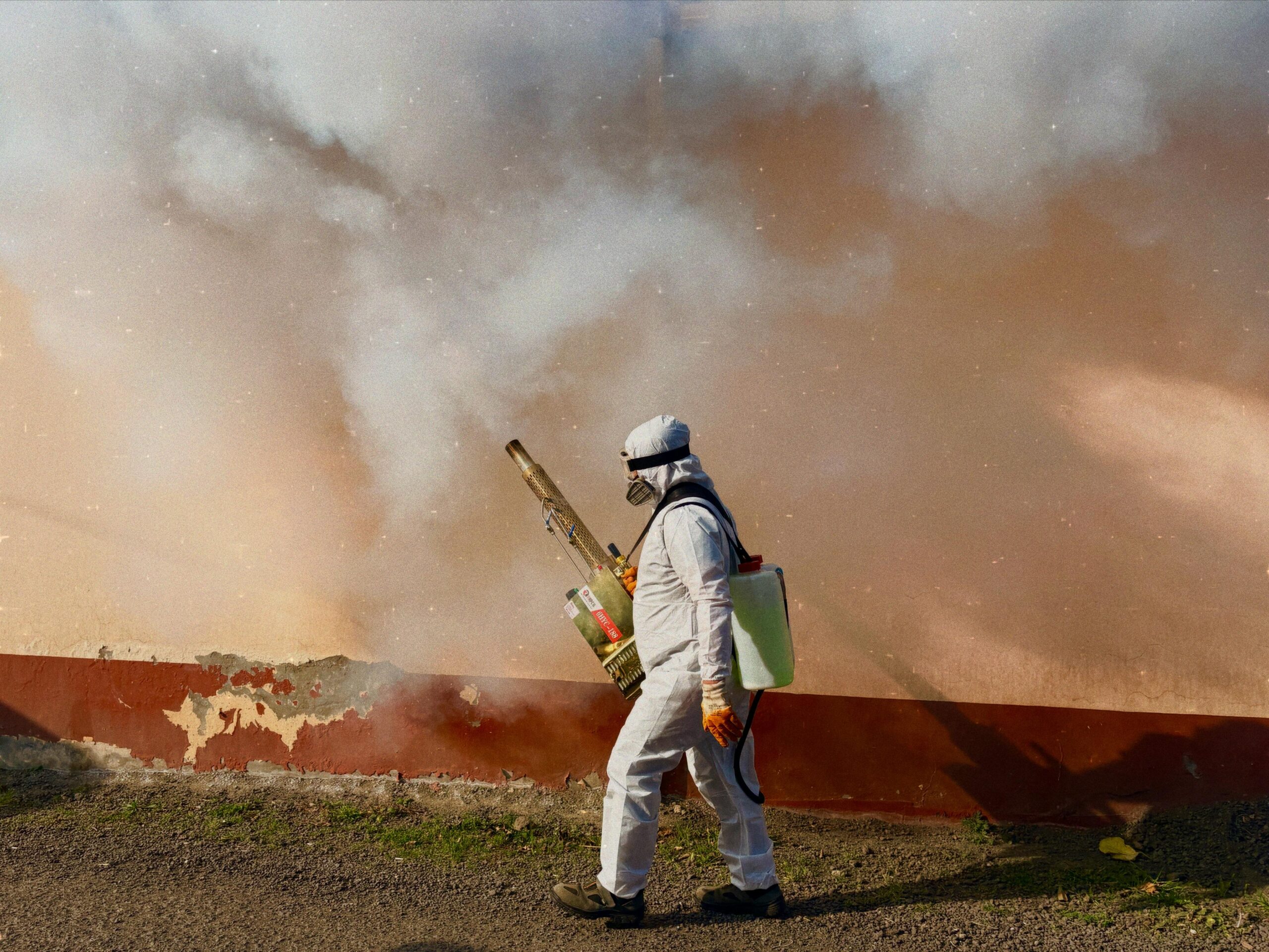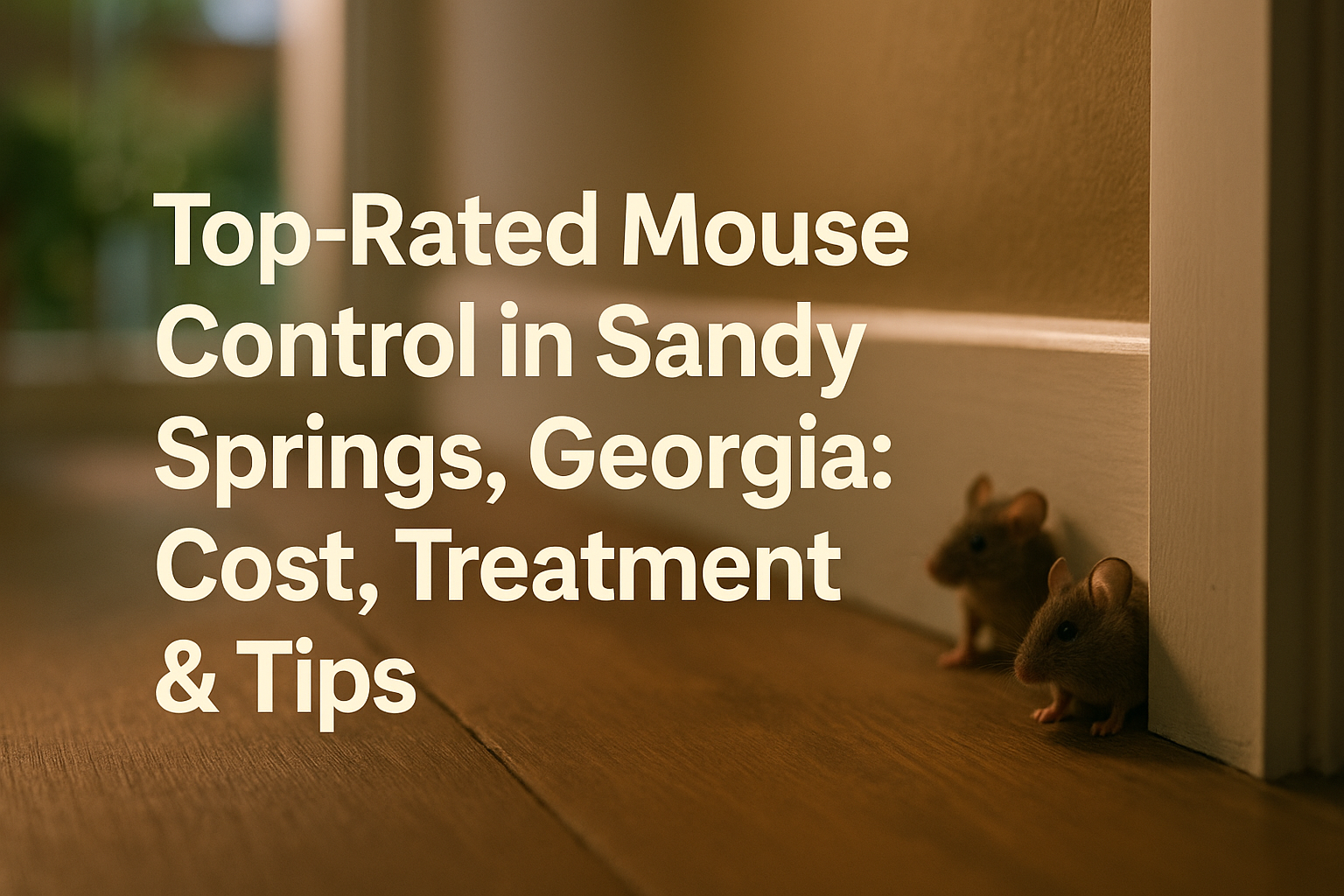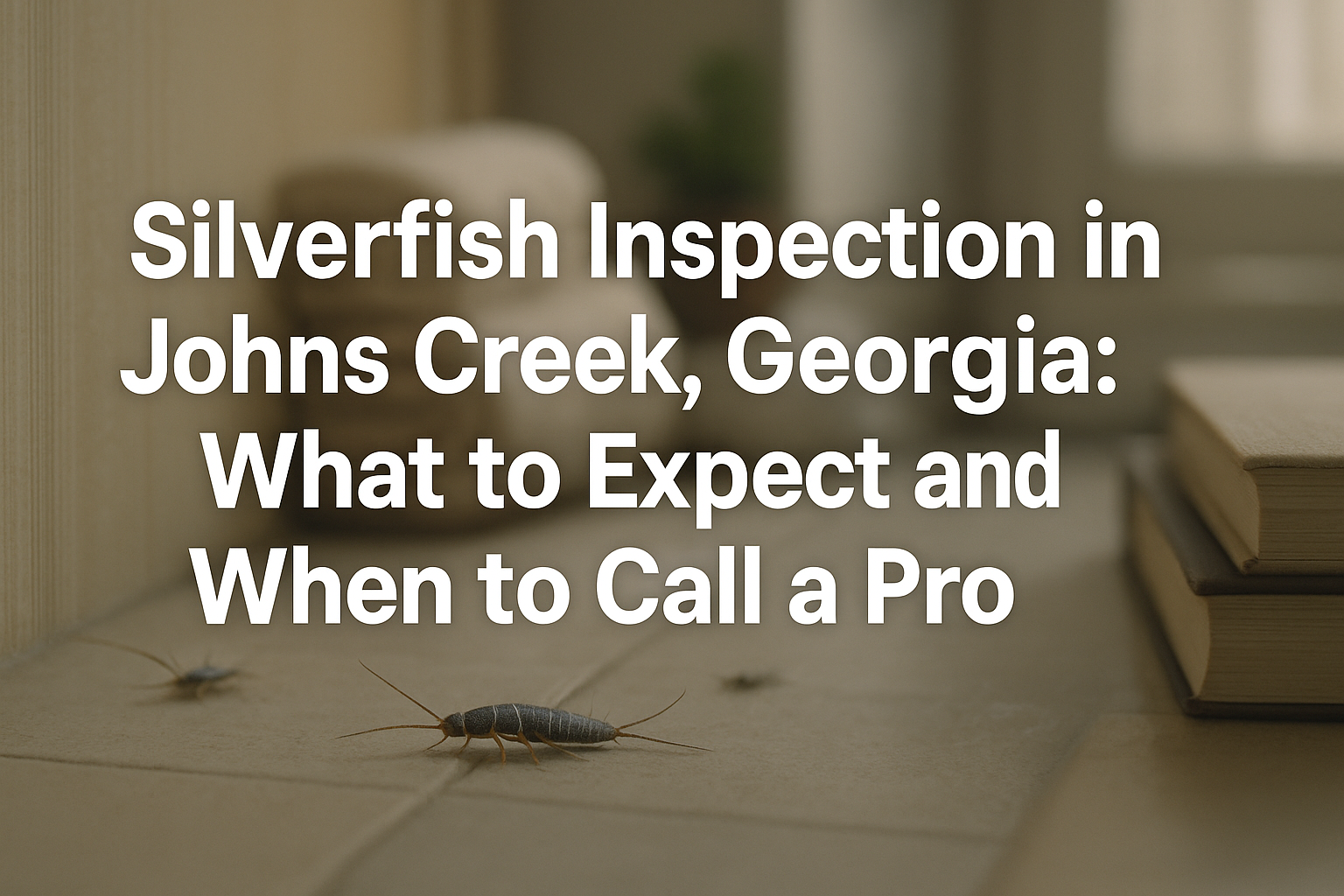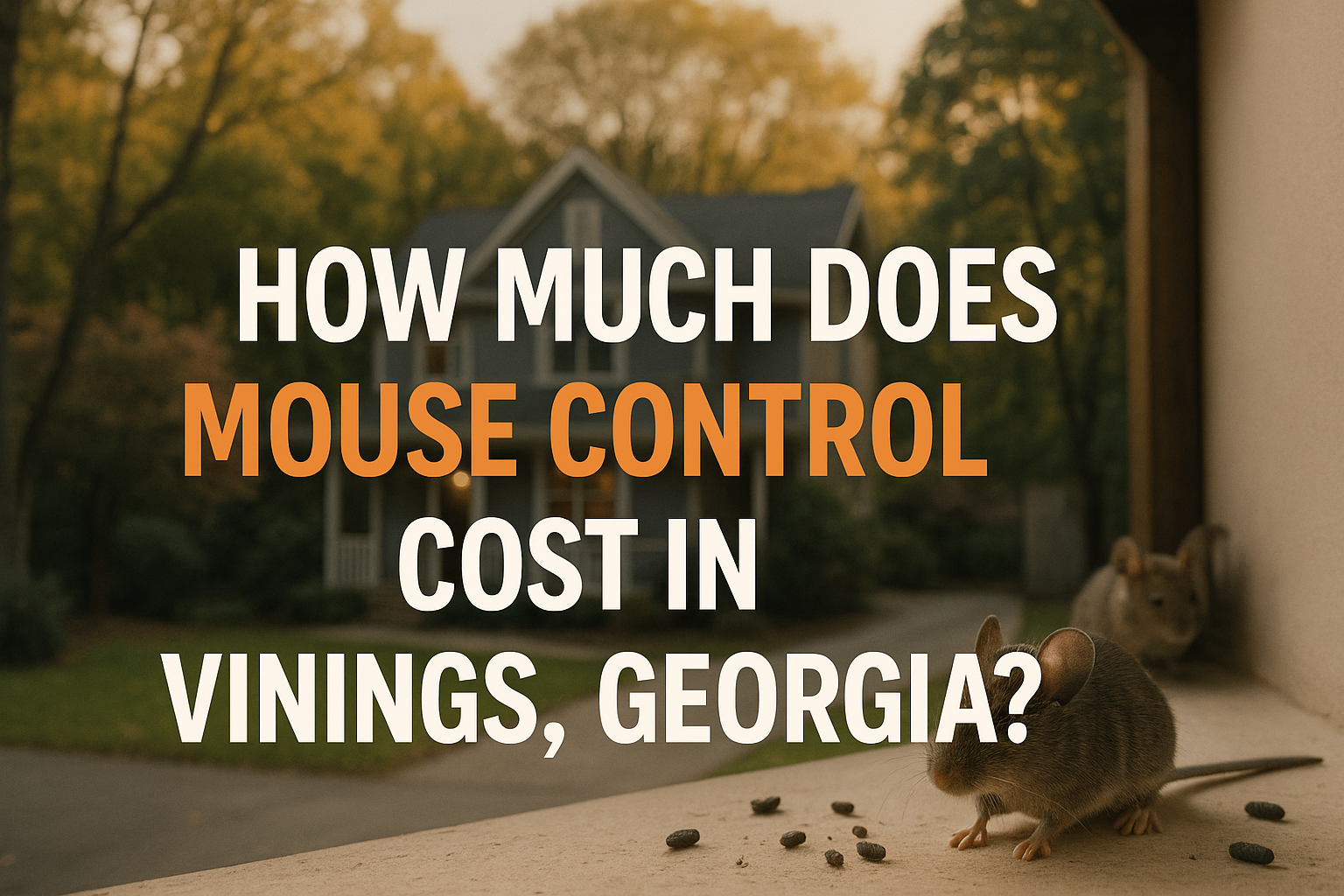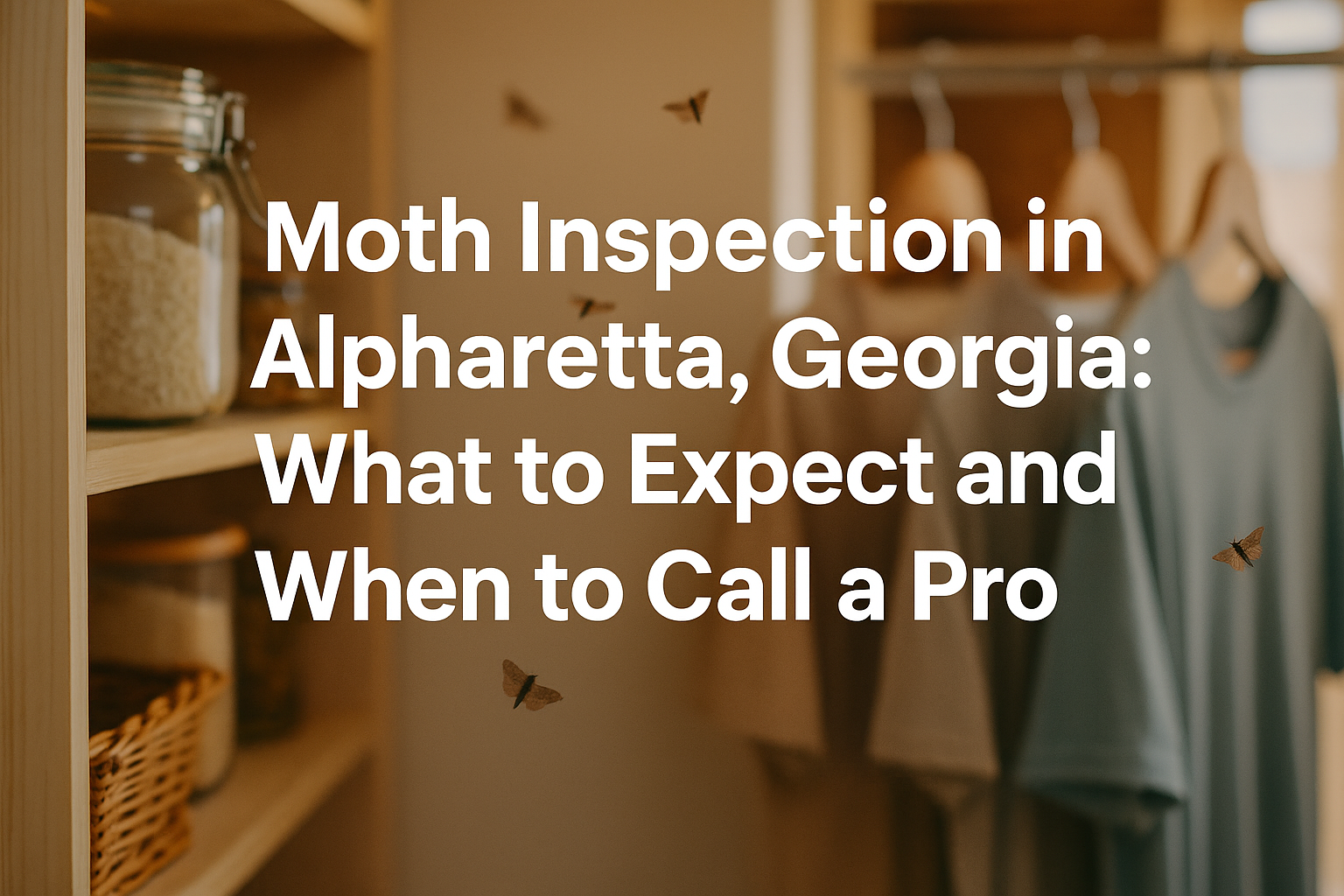Living in Alpharetta means enjoying beautiful seasons, but let’s be honest—it also means sometimes putting up with more creepy crawlies than you bargained for. Millipedes are a classic example, and they’re one of the main reasons many homeowners schedule a millipede inspection Alpharetta pest experts recommend. These critters love our moist, wooded neighborhoods, and when conditions are just right—think rainy springs or damp autumns—they’ll make a beeline straight from your mulch beds right into the house.
You’ll spot them curled up in the basement, lined up on garage floors, or wandering along baseboards. These aren’t the houseguests anyone wants, and unfortunately, once one appears, more are likely to follow, seeking out whatever damp, protected corner they can find.
If you’re wondering about the cost to fix this millipede headache, most Alpharetta homeowners spend somewhere between $125 and $275 for a professional inspection and straightforward treatment. The range mostly depends on how large your property is and just how out of hand the infestation’s gotten. Good pest pros won’t just look for the obvious places; they’ll get down to the nitty-gritty, checking crawlspaces, siding gaps, and even the spots you didn’t know were at risk.
No one enjoys surprises—especially the kind with a hundred legs. That’s why knowing your options early is key. Maybe you want a one-time fix, or maybe this isn’t your first rodeo and it’s time for a more comprehensive approach. Either way, in the next sections, we’ll dig into how millipede treatment costs break down, what really drives the price up or down, some smart prevention tips, and when it makes sense to bring in an Alpharetta local who knows millipede behavior inside and out.
If you’re tired of seeing these little critters every wet season, don’t stress. Get familiar with the options, check out the costs, and decide what works best for your home. A dry, millipede-free house is possible—and it starts with knowing where to start.
What Impacts the Cost of Millipede Inspections and Treatments in Alpharetta?
Wondering why the price for millipede inspection Alpharetta services and treatments can feel all over the place? Let’s break it down so you know exactly what you’re paying for—and what matters most when it comes to protecting your Alpharetta home.
- Property Size and Layout: If you’ve got a sprawling lawn or a bigger house, it takes more time (and yes, more product) to inspect and treat every nook and cranny. Extra landscaping or unique layouts, especially in neighborhoods like Windward, require inspectors to look a bit harder for those sneaky entry points.
- How Bad the Millipede Problem Is: Seeing just a couple of millipedes here and there? That’s one thing. Finding them in every room is another. More millipedes means more intensive treatments—maybe a couple visits, or extra work sealing up those entry spots.
- The Type of Service You Choose: Not all treatments are built the same. A basic inspection will run you less, but if you need foundation sealing, professional-grade chemical barriers, or follow-up treatments, costs will go up. If you want long-term prevention instead of just a quick fix, plan on a bigger investment up front.
- Age and Condition of Your Home: Older homes in areas like Alpharetta Estates tend to have more cracks, gaps, or even damp basements—prime millipede hideouts. These properties often need extra exclusion work and possibly even repairs, which can add to the bill.
- Ongoing Moisture Issues: Millipedes love damp places. If your property has a moisture problem—maybe from poor drainage, leaks, or humid basements—you might need additional moisture control measures along with your standard bug treatment. That means more work and higher costs.
So what’s a fair price in Alpharetta? Most homes fall in the range of $125 to $275 for a professional inspection and initial treatment. If you’ve got severe infestations, lots of landscaping, or persistent moisture, you could see prices above that bracket. The key is making sure you get a thorough inspection and a solution that actually keeps the millipedes out for good.
If you’re not sure what you need, don’t be afraid to ask for a custom quote. Local pros will size up your property, talk about your specific millipede headaches, and give you straight-up answers—no surprises.
What Impacts the Cost of Millipede Inspections and Treatments in Alpharetta?
Wondering why the price for millipede inspection Alpharetta services and control treatments can feel all over the place? Let’s break it down so you know exactly what you’re paying for—and what matters most when it comes to protecting your Alpharetta home.
- Property Size and Layout: If you’ve got a sprawling lawn or a bigger house, it takes more time (and yes, more product) to inspect and treat every nook and cranny. Extra landscaping or unique layouts, especially in neighborhoods like Windward, require inspectors to look a bit harder for those sneaky entry points.
- How Bad the Millipede Problem Is: Seeing just a couple of millipedes here and there? That’s one thing. Finding them in every room is another. More millipedes means more intensive treatments—maybe a couple visits, or extra work sealing up those entry spots.
- The Type of Service You Choose: Not all treatments are built the same. A basic inspection will run you less, but if you need foundation sealing, professional-grade chemical barriers, or follow-up treatments, costs will go up. If you want long-term prevention instead of just a quick fix, plan on a bigger investment up front.
- Age and Condition of Your Home: Older homes in areas like Alpharetta Estates tend to have more cracks, gaps, or even damp basements—prime millipede hideouts. These properties often need extra exclusion work and possibly even repairs, which can add to the bill.
- Ongoing Moisture Issues: Millipedes love damp places. If your property has a moisture problem—maybe from poor drainage, leaks, or humid basements—you might need additional moisture control measures along with your standard bug treatment. That means more work and higher costs.
So what’s a fair price in Alpharetta? Most homes fall in the range of $125 to $275 for a professional inspection and initial treatment. If you’ve got severe infestations, lots of landscaping, or persistent moisture, you could see prices above that bracket. The key is making sure you get a thorough inspection and a solution that actually keeps the millipedes out for good.
If you’re not sure what you need, don’t be afraid to ask for a custom quote. Local pros will size up your property, talk about your specific millipede headaches, and give you straight-up answers—no surprises.
Why Millipedes Love Alpharetta (And What That Means for Your Home)
If you’ve lived in Alpharetta long enough, you know how our weather can swing from one extreme to the next, but there’s one thing that stays pretty constant: humidity. Especially in the spring, those heavy rains saturate our clay soil, and that’s when millipedes really start sneaking indoors. If you’ve got thick layers of mulch around your house—think Old Milton or near Webb Bridge Park—you’re basically rolling out the welcome mat for them.
Now, not every home is built the same, and where you live in Alpharetta makes a difference. Older houses in neighborhoods like Andover North or Deerfield? They often come with unfinished basements, crawl spaces, and more places for moisture to settle. Combine that with aging foundations, and it’s easy for millipedes to find a way in.
On the flip side, if you’re in a newer home with a sealed foundation, you’ve got better protection. But even then, during those peak wet seasons, millipedes can still be an issue—especially if your landscaping holds moisture or your drainage isn’t up to snuff. Homes with dense landscape beds or any kind of drainage trouble are always at a higher risk, and that can mean more work and higher service costs to keep things under control.
Pricing? It’s not one-size-fits-all. If your property needs extra barrier treatments, or if your yard is a magnet for moisture, service usually costs more because of the extra time and material involved. The combination of our weather, the unique way homes are built in different neighborhoods, and how well your property handles moisture all play a big role in deciding what you’ll pay to keep your home critter-free.
So if you’re seeing more millipedes lately—or just want to stay ahead of them—it pays to look not just at your house, but at your landscaping and location, too. A little insight now can save you hassle (and costs!) down the road.
Smart Steps Alpharetta Homeowners Can Take to Keep Millipedes at Bay
If you’re like most Alpharetta homeowners, the last thing you want is a surge of millipedes sneaking into your home—especially after heavy rainfall or during the muggy seasons. Good news: with a few smart habits, you can stop these critters in their tracks and avoid calling for expensive emergency pest services.
- Start with your yard: Millipedes love moisture and clutter. Make a habit of cleaning up fallen leaves, clearing away decaying mulch, and pulling debris back from your foundation—this takes away their favorite hiding spots right beside your home.
- Drainage is key: Soggy patches around your house are prime real estate for millipedes. Fix leaky hoses, keep gutters and downspouts flowing, and make sure water runs away from your foundation after storms. The drier the perimeter, the less likely you’ll see a millipede parade inside.
- Seal it tight: Walk around your house and look for any gaps or cracks near doors, windows, or your home’s siding. A little caulk or weatherstripping now can save you a lot of hassle when the next rain sends millipedes searching for shelter.
- Moisture patrol: Basements and crawlspaces are common trouble spots. Run a dehumidifier if you notice dampness, and check for condensation or leaks under pipes. Small fixes here pay big dividends over time.
- Get ahead of the season: Consider professional inspections before millipede numbers spike—typically in spring and fall. Local pest pros often offer off-season pricing, and catching issues early leads to better, more affordable results.
- Barrier treatments: A simple perimeter pest treatment a couple of times a year can stop most millipedes before they get inside—especially when teamed with good upkeep outside.
Putting these tips into regular practice means fewer run-ins with millipedes, lower service bills, and peace of mind knowing your Alpharetta home is protected—without spending a fortune. And if you ever need extra help, a local pest expert can give you advice tailored to your home and property.
Best Time to Schedule Millipede Inspections in Alpharetta
If you’ve noticed the occasional millipede sneaking in around doors or damp corners, you’re not alone. But here’s the real trick: it’s all about timing your inspection and treatment before they take over. In Alpharetta, millipedes usually show up in force right after our heavy spring and fall rains. That means the smartest move is to book your pest inspection in late winter or early fall—just before the rainy season pushes them indoors.
Why does timing matter? Here are a few solid reasons:
- Easier Prevention: Catching millipedes early, before local demand spikes, lands you better pricing and quicker appointments.
- More Effective Barriers: Treatments done before the soil gets soaked will usually last longer and provide the best protection for your home.
- Maximum Value: Service pros aren’t running from one infestation to the next yet, so you get top attention and likely better deals.
This is especially important for neighbors in areas like Windward and Andover North—anywhere older homes or drainage issues make millipede sightings more common. Don’t wait until you’re spotting them every morning; being proactive keeps you a step ahead and keeps your home dry and pest-free.
Bottom line? Book your millipede inspection Alpharetta services just before our rainy seasons hit. Get it done early, and you’ll save money, avoid the rush, and stop millipedes in their tracks before they move in. Ready to see how timing pays off throughout the year? Check out the next section for a seasonal comparison.
Ready to Kick Millipedes Out of Your Alpharetta Home?
You want a pest-free home—so let’s get it handled. Call Anthem Pest Control at 877-3718-5196 and ask for your free, no-obligation property assessment. We’ll give you honest advice, a clear quote, and answers to your toughest millipede questions. You’ll know exactly what millipede treatment costs, without any hidden surprises.
We’ll show you affordable, customized solutions that actually work for Alpharetta homes. Our team’s local, friendly, and ready to protect your property with proven strategies that prevent millipede invasions—before they start.
If you’re curious about typical cost ranges and want extra info, check out our Millipede Control Costs in Alpharetta guide.
Don’t wait—reach out and let Anthem Pest take care of your home with the same care we’d give our own. Let’s make those pests a thing of the past.
Common Questions Alpharetta Homeowners Ask About Millipede Inspections
Ever wake up after a big rain and suddenly see a parade of little millipedes in your basement or along your baseboards? You’re not alone—this is actually the top sign that you may need a millipede inspection Alpharetta homeowners rely on. If you spot them gathered near damp spots or creeping out from under doors, it’s a dead giveaway they found a way in.
When Should You Get an Inspection?
The pros recommend getting a thorough inspection before the weather warms up in spring or before the rainy spells of fall. That’s when millipede activity (and your peace of mind) are both at their peak, so acting early helps keep the problem from multiplying.
What Happens During a Professional Inspection?
An expert isn’t just going to glance at your kitchen and call it a day. Expect a full walkthrough inside and out—checking your basement, crawlspace, garage, vents, door gaps, and places moisture collects. They’ll spot the places millipedes sneak inside and give you a solid plan for both fixing the issue now and preventing it down the line.
Is It Really Worth Hiring a Pro?
We get it: sometimes DIY seems appealing, but Alpharetta’s blend of older homes, thick landscaping, shaded yards, and Georgia’s humidity mean that millipedes can stick around despite store-bought sprays. Professionals like our local team use commercial solutions and know-how to handle hard-to-reach breeding spots, so you get lasting relief and fewer callbacks.
Are Treatments Safe for Pets and Kids?
Absolutely. Local companies like Anthem Pest use targeted, low-impact products and smart application methods as part of an eco-friendly pest management solution. Your family and pets are safe to get back to normal as soon as a few hours after treatment in most cases.
How Can I Keep Pest Expenses Down Over Time?
Merging regular seasonal pest control with a few key home upgrades (fixing leaks, sealing gaps, improving drainage, and trimming that thick Georgia landscaping) makes a big difference. Not only will you see fewer creepy-crawlies, but your overall pest control investment goes way further.
Are Some Alpharetta Neighborhoods More at Risk?
Yep—millipedes love older, shady spots with heavy leaves and mulch. If you’re in Windward, Andover North, or pockets with mature trees and old foundations, you’ve likely seen millipedes more often. Extra damp areas or frequent landscaping are a magnet. That just means you may want to be a step ahead with prevention and inspections.
Want More Details on Costs and Process?
If you’re curious about pricing or exactly how a millipede inspection works in Alpharetta, check out Millipede Control Alpharetta. For advice if you’re in neighboring Johns Creek, see Millipede Inspection in Johns Creek, GA.
Got more specific questions or need help? Reach out to your local pest experts—we’re here to put millipedes, and your worries, to bed.

